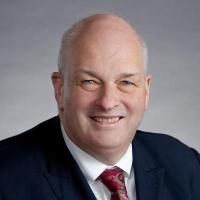Effect modifiers for patient-reported outcomes in operatively and nonoperatively treated patients with adult symptomatic lumbar scoliosis: a combined analysis of randomized and observational cohorts.
Date
2020-03
Journal Title
Journal ISSN
Volume Title
Repository Usage Stats
views
downloads
Citation Stats
Abstract
OBJECTIVE:Adult symptomatic lumbar scoliosis (ASLS) is a common and disabling condition. The ASLS-1 was a multicenter, dual-arm study (with randomized and observational cohorts) examining operative and nonoperative care on health-related quality of life in ASLS. An aim of ASLS-1 was to determine patient and radiographic factors that modify the effect of operative treatment for ASLS. METHODS:Patients 40-80 years old with ASLS were enrolled in randomized and observational cohorts at 9 North American centers. Primary outcomes were the differences in mean change from baseline to 2-year follow-up for the SRS-22 subscore (SRS-SS) and the Oswestry Disability Index (ODI). Analyses were performed using an as-treated approach with combined cohorts. Factors examined were prespecified or determined using regression tree analysis. For each potential effect modifier, subgroups were created using clinically relevant cutoffs or via regression trees. Estimates of within-group and between-group change were compared using generalized linear mixed models. An effect modifier was defined as a treatment effect difference greater than the minimal detectable measurement difference for both SRS-SS (0.4) and ODI (7). RESULTS:Two hundred eighty-six patients were enrolled and 256 (90%) completed 2-year follow-up; 171 received operative treatment and 115 received nonoperative treatment. Surgery was superior to nonoperative care for all effect subgroups considered, with the exception of those with nearly normal pelvic incidence-lumbar lordosis (PI-LL) match (≤ 11°). Male patients and patients with more (> 11°) PI-LL mismatch at baseline had greater operative treatment effects on both the SRS-SS and ODI compared to nonoperative treatment. No other radiographic subgroups were associated with treatment effects. High BMI, lower socioeconomic status, and poor mental health were not related to worse outcomes. CONCLUSIONS:Numerous factors previously related to poor outcomes with surgery, such as low mental health, lower socioeconomic status, and high BMI, were not related to outcomes in ASLS in this exploratory analysis. Those patients with higher PI-LL mismatch did improve more with surgery than those with normal alignment. On average, none of the factors considered were associated with a worse outcome with operative treatment versus nonoperative treatment. These findings may guide future prospective analyses of factors related to outcomes in ASLS care.
Type
Department
Description
Provenance
Subjects
Citation
Permalink
Published Version (Please cite this version)
Publication Info
Yanik, Elizabeth L, Michael P Kelly, Jon D Lurie, Christine R Baldus, Christopher I Shaffrey, Frank J Schwab, Shay Bess, Lawrence G Lenke, et al. (2020). Effect modifiers for patient-reported outcomes in operatively and nonoperatively treated patients with adult symptomatic lumbar scoliosis: a combined analysis of randomized and observational cohorts. Journal of neurosurgery. Spine, 33(1). pp. 1–10. 10.3171/2020.1.spine191288 Retrieved from https://hdl.handle.net/10161/28158.
This is constructed from limited available data and may be imprecise. To cite this article, please review & use the official citation provided by the journal.
Collections
Scholars@Duke

Christopher Ignatius Shaffrey
I have more than 25 years of experience treating patients of all ages with spinal disorders. I have had an interest in the management of spinal disorders since starting my medical education. I performed residencies in both orthopaedic surgery and neurosurgery to gain a comprehensive understanding of the entire range of spinal disorders. My goal has been to find innovative ways to manage the range of spinal conditions, straightforward to complex. I have a focus on managing patients with complex spinal disorders. My patient evaluation and management philosophy is to provide engaged, compassionate care that focuses on providing the simplest and least aggressive treatment option for a particular condition. In many cases, non-operative treatment options exist to improve a patient’s symptoms. I have been actively engaged in clinical research to find the best ways to manage spinal disorders in order to achieve better results with fewer complications.
Unless otherwise indicated, scholarly articles published by Duke faculty members are made available here with a CC-BY-NC (Creative Commons Attribution Non-Commercial) license, as enabled by the Duke Open Access Policy. If you wish to use the materials in ways not already permitted under CC-BY-NC, please consult the copyright owner. Other materials are made available here through the author’s grant of a non-exclusive license to make their work openly accessible.
